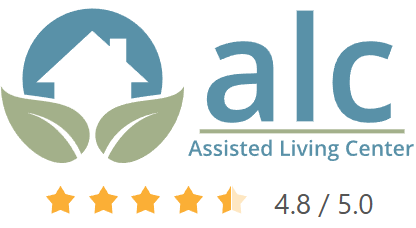
Juggling work, family, and the needs of an aging parent or relative can be overwhelming. The weight of these responsibilities can leave you feeling spread thin, constantly torn between the things that require your attention. You long to provide the best possible care for your aging loved one, but the demands of daily life can make it seem almost impossible. Luckily, there are various options for senior care all over Los Angeles that can help you make this significantly easier.
From preparing nutritious meals to providing medication reminders, an experienced professional can cater to a whole range of needs. In the meantime, you will be able to take a much-needed break and spend time with your aging loved one doing something you both genuinely enjoy doing instead of constant caretaking.
But before you find the right trustworthy and respectful professional for your elderly relative, you will probably start wondering about some practical questions. How much does senior home care cost? Are there some practical ways to pay for it that will be within budget? All of this and more is covered in-depth in this comprehensive guide to senior care payments, costs, and options.
What is the least expensive type of long-term care?
When considering long-term care options for your aging loved ones, you’ll likely consider the cost as a major factor. Balancing the need for quality assistance with your current budget can sometimes be quite a challenge. Luckily, there’s a clear frontrunner when it comes to affordability, and that’s in-home care.
The affordable and sensible choice
As the name suggests, in-home care means that your aging loved one would get the assistance and support they need from an experienced caregiver, but in the comfort of their own familiar living space. This can range from a few hours a week to 24/7 assistance, depending on what your loved one needs.
The beauty of home care lies in its flexibility and cost-effectiveness. Compared to other options like nursing homes or assisted living facilities, it typically comes with a significantly lower price tag. This is primarily because you’re not paying for the overhead costs associated with maintaining a large facility, such as rent, utilities, and administrative staff.
Furthermore, you can pay only for the services you need. If your loved one needs assistance with a few specific tasks, like meal preparation or bathing, you can opt for a limited number of hours per week. This approach can significantly reduce your costs and make the entire arrangement more practical.
How much does private home care cost per hour in California?
While California is known for its sun-kissed beaches and beautiful neighborhoods, it’s no secret that the cost of living can be a bit steep. So, when it comes to something as important as home care, it’s natural to wonder about the financial implications.
The good news is that while in-home care in California isn’t exactly inexpensive, it’s certainly more affordable than you might initially assume. On average, you can expect to pay around $26 per hour for high-quality assistance. However, it’s important to remember that this is merely a statewide average. The prices can vary depending on where you’re located and the exact service you receive.
While you might be tempted to hire a caregiver directly to save some money, you should keep in mind the benefits of partnering with a reputable agency. Agencies may come with a slightly higher price tag, but they offer invaluable peace of mind. They conduct thorough background checks, ensure caregivers are properly trained and qualified, and can even provide replacements at short notice if your regular in-home caregiver is unavailable.
In-home care providers play an important role here and relying on an agency is your safest and most reliable way to make sure they’re the right match for your aging loved one’s needs. It’s an investment in security and reliability, both for yourself and your aging loved one.
How much does 24/7 in-home care cost?
Round-the-clock care has various benefits and offers the highest level of support and supervision, but it’s, understandably, the most expensive option. According to the latest data from 2024, the national median cost for 24/7 in-home care is $30 per hour. This translates to approximately $720 per day or $21,823 per month. It’s important to note that this cost typically involves multiple professionals working in shifts to provide continuous assistance and attention.
The need for 24/7 caregiving usually arises in situations where an individual has complex medical needs, is bedridden, or faces a debilitating condition. Therefore, they usually need assistance with even the most basic activities of daily living. In such cases, a senior care provider, even without formal medical training, plays an important role in offering companionship, assistance with personal care, meal preparation, medication reminders, and various other essential tasks.
If the individual also requires medical attention, you might be wondering how much is in-home medical care. In these cases, a home healthcare provider may be included in the care plan. This professional, often a registered nurse or therapist, provides skilled nursing or therapy services alongside the caregiver’s support.
While the cost of having help available round-the-clock can be significant, you need to weigh it against the alternatives. In many cases, the cost of nursing homes and assisted living facilities can surpass in-home care, which makes it a surprisingly competitive option for aging individuals who need extensive support.
Furthermore, the personalized attention and familiar surroundings offered by home care services can contribute significantly to your aging loved one’s overall well-being and quality of life. The comfort and security of remaining in their own space, surrounded by cherished belongings and memories, can be invaluable, especially for those with cognitive impairments or a strong resistance to care.
What affects the average cost of home care in California?
Determining the average cost of home care in California isn’t as straightforward as providing a single number. It’s a complex calculation influenced by a myriad of factors that vary based on individual needs and circumstances.
Level of care
The type and intensity of care required are the most significant cost drivers. If a senior only needs companionship and help with light housekeeping, the cost will be considerably lower than for someone requiring 24-hour supervision and medical assistance. For instance, Alzheimer’s or dementia assistance typically involves higher costs due to the specialized training and attention required by caregivers. There are more threats to the senior’s safety if they don’t have someone to oversee them if they struggle with these conditions, so a higher level of care is sometimes non-negotiable.
Geographic location
Location plays a substantial role in how much the service will cost. Major metropolitan areas like Los Angeles, San Francisco, and San Diego tend to have higher rates due to increased demand and a higher cost of living. In contrast, more rural areas or smaller towns may have lower rates for comparable services. You’ll likely need to contact providers in your specific area to get accurate estimates.
Provider type
The choice of home care provider also affects costs. Agencies typically charge higher rates than independent caregivers because they handle administrative tasks like payroll, insurance, and scheduling. However, agencies also offer the advantage of backup caregivers and potentially a wider range of services. Independent professionals might be more affordable, but families need to handle the administrative aspects themselves.
Duration and frequency
The number of hours per day and days per week that the service is needed will directly impact the total cost. Hourly rates can vary, and some providers may offer discounts for longer care durations. Live-in care, where a caregiver resides with the senior, is the most expensive option due to the 24/7 availability.
Paying for in-home care: what are the options?
Most families find themselves wondering if the state of California can pay for elderly care. Unfortunately, the cost of non-medical home care is usually not covered by any federal or state programs, even though you, the family, know all too well that in-home care is no luxury, but a necessity. In other words, families and elderly citizens usually pay for the help by themselves. Luckily, the cost is fairly reasonable and the service includes invaluable assistance with various tasks.
There are some public benefit programs, but only elderly citizens with very limited income and few assets can apply. Some long-term insurance policies do, however, include in-home care coverage. Veterans and even their surviving spouses may be eligible for a benefit under the Veterans Aid & Attendance (A & A) program. Serving in combat is not a requirement.
What about insurance coverage?
Medicaid, the joint federal and state program that helps with medical costs for people with limited income and resources, can potentially cover home care services in California. However, eligibility requirements and the extent of coverage can be complex.
Medi-Cal
In California, Medicaid is known as Medi-Cal. Medi-Cal offers two primary programs that can help cover in-home care costs:
In-Home Supportive Services (IHSS)
This program provides non-medical care services to low-income elderly, blind, or disabled individuals who live in their own homes. Services can include personal care, domestic chores, meal preparation, and accompaniment to medical appointments. Eligibility is based on income, assets, and functional limitations.
Home and Community-Based Services (HCBS) waivers
These waivers allow Medi-Cal to cover a broader range of home and community-based services that would typically be covered under traditional Medicaid. This can include personal care, respite care, adult day health care, and home modifications. Each waiver has specific eligibility requirements, often targeting individuals who would otherwise require nursing home-level care.
Are senior care costs tax deductible?
Certain costs can be deducted from your taxes under very specific circumstances. In general, the IRS allows you to deduct medical expenses that exceed 7.5% of your adjusted gross income. This includes some costs associated with in-home care, too. However, it’s very important to make a distinction between medical and non-medical expenses here.
- Medical: Expenses directly related to medical care, such as nursing services, physical therapy, medication management, and assistance with activities of daily living.*
- Non-medical: Expenses for room and board, meals, housekeeping, and social activities.
*Activities of daily living can be deductible only if a physician claims that your aging loved one has a severe cognitive impairment that prevents them from doing this, or if they certify that your aging loved one needs a lot of assistance with at least 2 daily activities for at least 90 days.
Therefore, for senior care costs to be tax deductible, the assistance has to be primarily for medical purposes and prescribed by a qualified physician. The caregiver providing the services also has to be a qualified home health aide or medical professional.
It’s also important to note that if you’re claiming a parent as a dependent, you may be able to deduct their eligible care expenses as long as you provide more than half of their financial support.
Who is a reliable provider of in-home care services in Los Angeles?
Feeling overwhelmed trying to balance your life with the needs of your aging loved one? It might be time to turn to trusted and experienced professionals at A Better Way In Home Care. We’re here to help you find high-quality senior in-home care in Los Angeles, but that’s not all. We cover a wide area, so if you need reliable home care services in Beverly Hills or a nearby location, that’s not an issue either.
From healthy meal preparation that can motivate your aging loved one to eat more to helping them feel more empowered and functional, the professionals we refer can change your aging loved one’s life for the better. With the right help, your aging loved one can live a fulfilling and dignified life in the comfort of their own familiar space. Give us a call today and let us know what we can do for you and your family!










